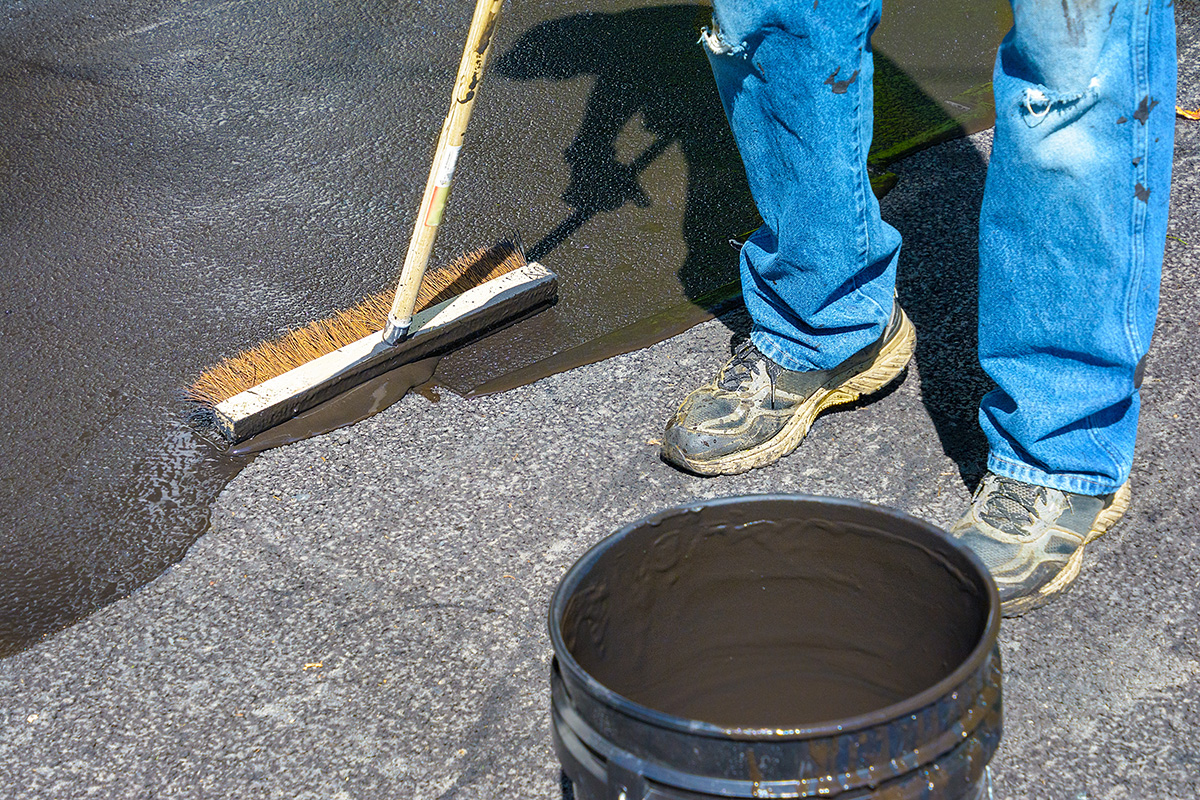Hot Mix Asphalt: A Sustainable Solution for Pavement
Warm Mix Asphalt (HMA) has actually arised as a leading sustainable choice for sidewalk services, using a myriad of environmental advantages and ingenious technologies. As the demand for eco-friendly building and construction methods grows, discovering the nuances of HMA's sustainability can give important understandings right into the future of sidewalk services.
Environmental Benefits of Hot Mix Asphalt

In Addition, Warm Mix Asphalt helps to alleviate metropolitan warmth island effects. Its dark color absorbs sunlight, reducing the quantity of warm mirrored back into the ambience compared to lighter-colored sidewalks. This can reduce ambient temperatures in metropolitan areas, lowering the need for air conditioning and eventually minimizing power consumption.
Furthermore, Hot Mix Asphalt adds to enhanced stormwater monitoring. Its porous nature allows water to charge and infiltrate the pavement groundwater materials, reducing runoff and the risk of flooding. These ecological advantages make Hot Mix Asphalt a lasting choice for paving roadways and freeways.
Energy Efficiency in HMA Production
Is energy performance a critical variable in the production of Warm Mix Asphalt (HMA)? Energy plays a considerable role in the production of HMA, affecting both cost and ecological sustainability. One essential facet of power efficiency in HMA production is the use of cozy mix asphalt (WMA) innovations.
In addition, innovations in plant technologies have actually led to even more energy-efficient HMA manufacturing processes. By enhancing energy usage in HMA manufacturing, the sector can lower its carbon impact while keeping top notch sidewalk materials.
Recyclability of Warm Mix Asphalt
The recyclability of Hot Mix Asphalt (HMA) is a pivotal aspect of its sustainability and long-lasting ecological influence. HMA is one of one of the most recycled products in the USA, with over 100 million lots of recovered asphalt pavement (RAP) being recycled each year in brand-new sidewalk construction. Reusing HMA offers several environmental benefits, such as lowering the demand for virgin materials, decreasing power intake during production, and lowering the quantity of waste sent to landfills.
The process of reusing HMA includes milling the existing sidewalk, crushing it right into smaller sized pieces, and mixing it with brand-new accumulation and asphalt binder to produce a recycled mix. Generally, the recyclability of HMA plays a considerable role in advertising sustainable practices within the sidewalk market.

Long-Term Performance of HMA
Asphalt sidewalks demonstrate resilience and strength over an extended duration, showing the long-term efficiency of Warm Mix Asphalt (HMA) Furthermore, innovations in HMA modern technology, such as the use of polymer-modified binders and cozy mix asphalt, have actually further improved the resilience and durability of HMA sidewalks. By focusing on high quality building and construction and upkeep methods, check my site HMA proceeds to prove itself as a economical and sustainable remedy for long-lasting sidewalk framework.

HMA: Toughness and Sustainability
Demonstrating both resilience and sustainability, Warm Mix Asphalt (HMA) has become a cornerstone in the building and construction of lasting sidewalk facilities - hot mix asphalt. HMA's longevity comes from its ability to withstand hefty loads, extreme weather, and high website traffic volumes, making it a dependable selection for streets, freeways, and airport runways. The make-up of HMA, which usually consists of aggregates, binder, and filler, plays a vital duty in enhancing its long life and resistance to deterioration
Furthermore, HMA's sustainability depends on its recyclability and energy-efficient manufacturing procedure. The ability to reuse recovered asphalt pavement (RAP) in new HMA Recommended Reading combinations reduces the demand for virgin materials and reduces the environmental effect of sidewalk building and construction and maintenance. Furthermore, the power performance of generating HMA lies in its lower mixing temperatures compared to other pavement products, resulting in lowered power usage and greenhouse gas exhausts.
Final Thought
Finally, hot mix asphalt (HMA) provides a sustainable option for pavement with its eco-friendly features. HMA's recyclability, power performance in manufacturing, and long-term toughness make it an environmentally friendly option for road building. By saving natural deposits, reducing waste, and lowering greenhouse gas emissions, HMA plays an essential role in promoting sustainability in facilities advancement. Its capability to alleviate metropolitan warm island impacts even more highlights its relevance in developing ecologically conscious and resistant sidewalk systems.
HMA is one of the most recycled products in the United States, with over 100 million heaps of recovered asphalt sidewalk (RAP) being recycled yearly in brand-new pavement construction.The procedure of recycling HMA entails grating the existing pavement, their website crushing it right into smaller items, and mixing it with brand-new aggregate and asphalt binder to create a recycled mix.Asphalt sidewalks demonstrate durability and durability over an extended duration, reflecting the lasting efficiency of Warm Mix Asphalt (HMA) Additionally, innovations in HMA innovation, such as the usage of polymer-modified binders and cozy mix asphalt, have actually better enhanced the sturdiness and longevity of HMA sidewalks. The ability to reuse recovered asphalt sidewalk (RAP) in new HMA combinations lowers the demand for virgin products and minimizes the ecological influence of pavement building and construction and maintenance.